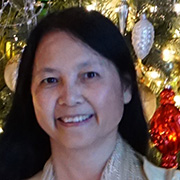A .gov website belongs to an official government organization in the United States.
A lock () or https:// means you've safely connected to the .gov website. Share sensitive information only on official, secure websites.

Air pollution is heterogeneous within cities, creating "hot spots" and subsequent disproportionate exposure at hyperlocal scales. Hyperlocal measurements and modeling can identify air pollution hot spots, their drivers, and impacts, thus informing city-scale mitigation strategies and decision-making; however, such efforts are still significantly lacking. The Healthier Air and People: Intelligent Solutions to Urban Pollution for Equity and Resilience (iSUPER) impact engine bridges this critical gap by integrating hyperlocal air quality sensing and modeling to co-create actionable data with city and community partners across Greater Boston. This seminar will provide an overview of iSUPER along with highlights of its major research activities.
Yang Zhang is a COE Distinguished Professor, Associate Chair for Research, and Lead Principal Investigator for iSUPER in the Department of Civil and Environmental Engineering at Northeastern University in Boston. She holds a Ph.D. in Chemical and Biochemical Engineering from the University of Iowa, and a B.S. in Environmental Engineering from Tsinghua University, China. Her interdisciplinary research advances scientific understanding through the development and application of numerical models and analytical tools and their integration with observations to address pressing science and policy questions. These include controlling air pollution, mitigating climate change, protecting human health, and reducing environmental damage across the Earth system. Dr. Zhang has authored or co-authored more than 200 peer-reviewed journal articles. She is a recipient of the U.S. NSF CAREER Award in Atmospheric Chemistry, along with multiple international fellowships and scholarship honors. She is a recipient of the U.S. NSF Career Award in Atmospheric Chemistry and several international fellowships and scholarships. She is a member of the Academia Europaea, and serves on the WMO's Global Air quality Forecasting and Information System (GAFIS) Steering Committee, and the External Advisory Committee of the Community Modeling and Analysis System center at the University of North Carolina at Chapel Hill.
ALL Seminar attendees agree not to cite, quote, copy, or distribute material presented without the explicit written consent of the seminar presenter. Any opinions expressed in this seminar are those of the speaker alone and do not necessarily reflect the opinions of NOAA or CSL.